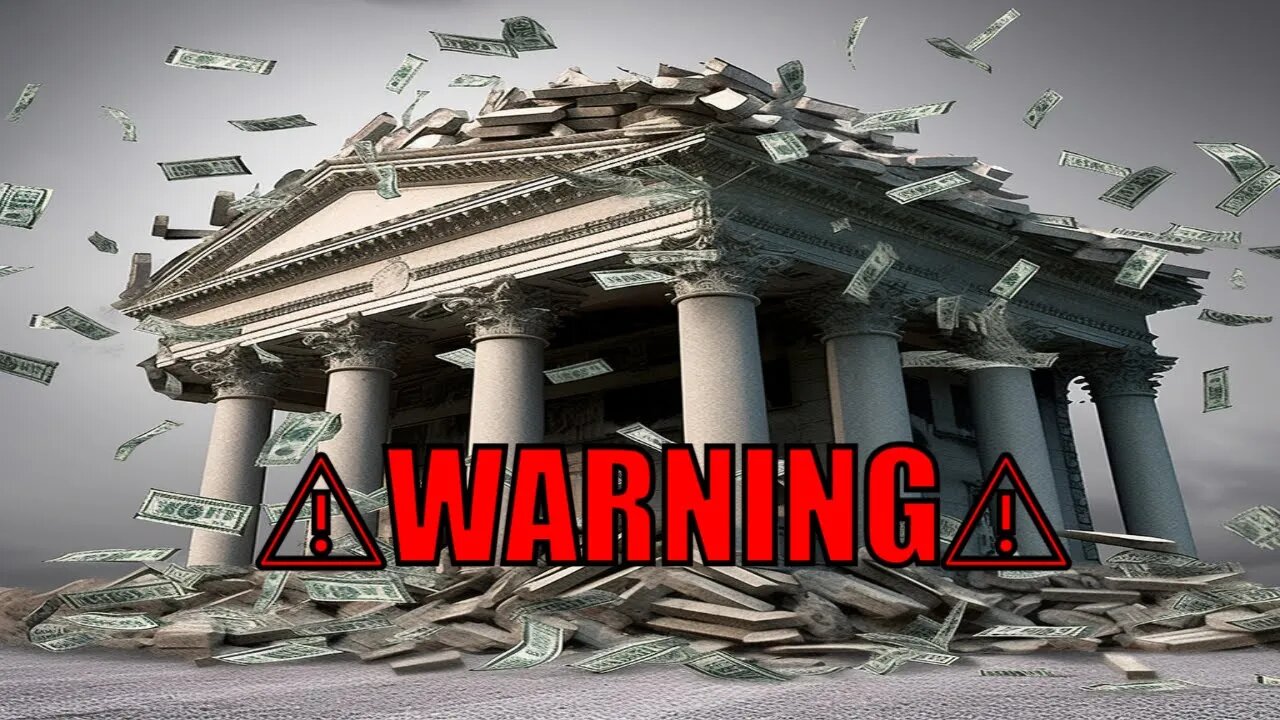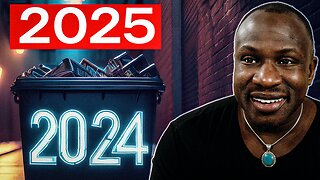Premium Only Content

Are we headed towards an economic disaster?
Credit default swaps are a type of financial derivative that allows investors to protect themselves against the risk of default on a particular bond or other debt instrument. Essentially, a credit default swap is an insurance policy that pays out in the event of a default. The buyer of a credit default swap pays a premium to the seller, who agrees to pay out a certain amount of money in the event of a default. If the default occurs, the seller of the credit default swap pays the buyer the face value of the bond or debt instrument. If the default does not occur, the seller keeps the premium.
The cost to secure against a government default on the $31.4 trillion debt has spiked 10x in the past six months, with March seeing a huge jump from 57 to currently 151 in one year US credit default swaps (CDS), up from just 15 in December. The 5 year credit default swaps have not yet surpassed 2008, but are not far behind at 63 compared to the 86 peak in February 2009. The spike in March suggests concerns over the credit worthiness of the United States arise due to concerns over the state of US commercial banking.
The current United States debt to GDP levels are at 107.6%, which is higher than the levels seen during the 2008 financial crisis. This is a cause for concern among economists and policymakers, as a high debt to GDP ratio can lead to a number of economic problems, including inflation, higher interest rates, and slower economic growth.
The current situation in the United States bears many similarities to the 2008 housing market collapse. In both cases, complex financial instruments were used to create a false sense of security and to hide the true risks of the investments. In both cases, the risks were not fully understood by investors, regulators, or policymakers. And in both cases, the risks eventually led to a crisis that had far-reaching consequences for the economy and for individuals.
The FDIC plays an important role in protecting consumers and maintaining stability in the banking system. The FDIC is responsible for insuring deposits in banks and thrift institutions, and for resolving failed institutions. In the event of a bank failure, the FDIC steps in to protect depositors and to ensure that the bank's assets are used to pay off its debts. The FDIC also works to prevent bank failures by monitoring banks and taking action when necessary to address potential problems.
US Economy On Verge of Collapse! 💣💥
#finance #economics #economy #personalfinance #money #banking #financenews #crypto
banking crisis,banking crisis 2023,banking crisis today,finance,finance news,us economy,us economy news,personal finance,banks collapsing,banks filing bankruptcy,money,stocks,yahoo finance,investing,stock market,stock market news,news,world news,business news,financial news,federal reserve,market,economy,investment,money tips,silicon valley bank,markets,more crypto online,first republic bank,fed,cpi,housing market,earnings,fomc,first republic
-
 16:46
16:46
Capital Recon
9 days ago $0.02 earnedHyperliquid Explained: Price Action, Security Drama & Next-Gen Tech!
681 -
 10:15:14
10:15:14
MDGgamin
10 hours ago🔴LIVE-Escape From Tarkov - 1st Saturday of 2025!!!! - #RumbleTakeover
43.7K2 -
 3:54:19
3:54:19
SpartakusLIVE
6 hours agoPUBG Duos w/ Viss || Tactical Strategy & HARDCORE Gameplay
47.9K1 -
 5:54:54
5:54:54
FRENCHY4185
7 hours agoFRENCHY'S BIRTHDAY BASH !!! THE BIG 40 !!!
64.1K3 -
 1:23:33
1:23:33
Michael Franzese
15 hours agoThings to look forward to in 2025
83.9K46 -
 3:23:02
3:23:02
I_Came_With_Fire_Podcast
16 hours agoDefeating VICTIMHOOD: Advocacy, Resiliency, and Overcoming Abuse
93.4K15 -
 2:00:56
2:00:56
Game On!
23 hours ago $10.20 earnedNFL Experts debate if Joe Burrow will make HISTORY in Week 18!
111K13 -
 2:07:57
2:07:57
InfiniteWaters(DivingDeep)
4 days agoHOW TO ENTER 2025 LIKE A BOSS!
41.5K1 -
 15:43
15:43
Tactical Advisor
9 hours agoBEST and WORST Guns Of 2024
31.7K8 -
 9:14
9:14
Dermatologist Dr. Dustin Portela
8 hours ago $1.07 earnedProducts a Dermatologist Actually Uses
28.6K10